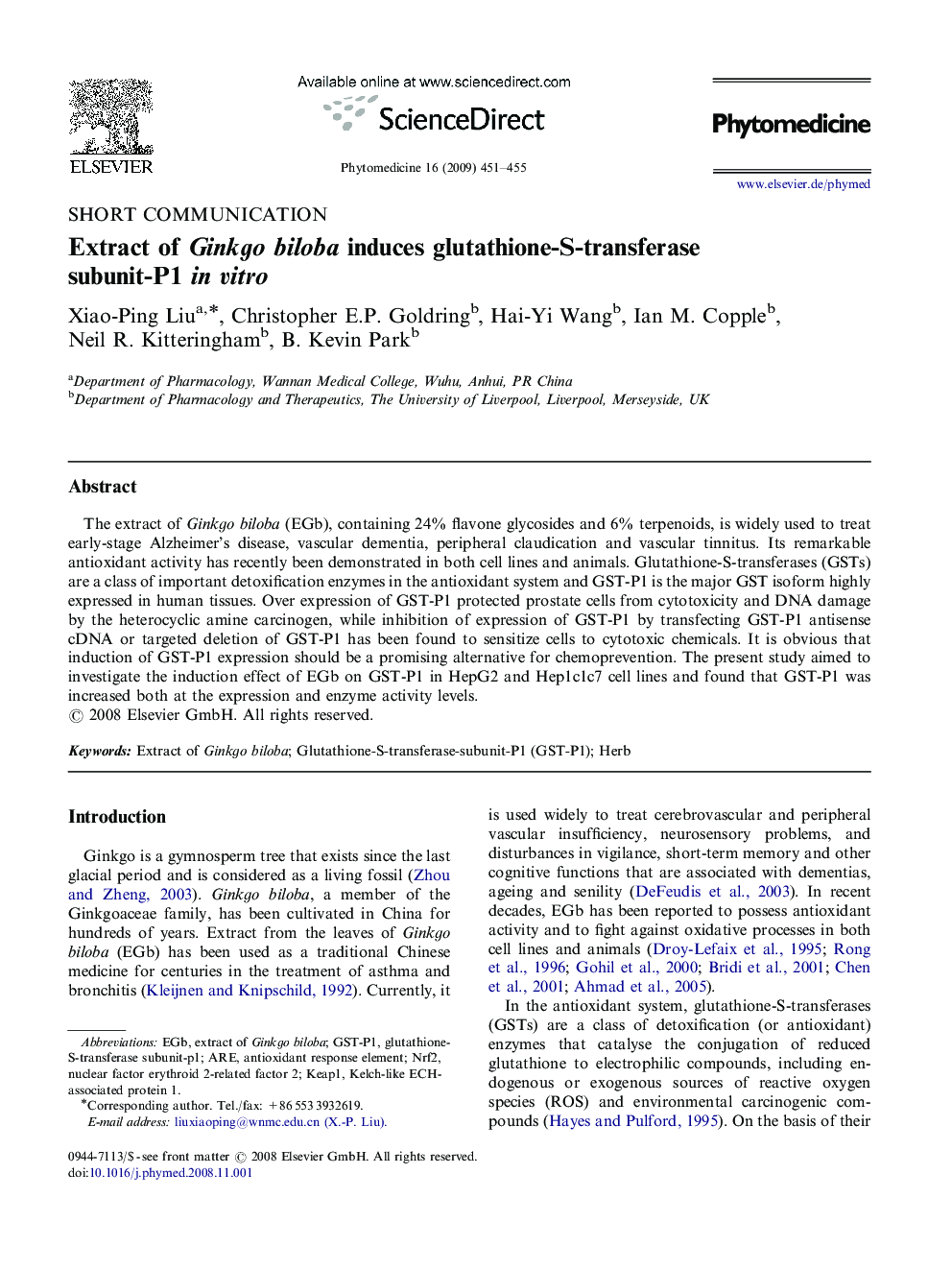| Article ID | Journal | Published Year | Pages | File Type |
|---|---|---|---|---|
| 2497812 | Phytomedicine | 2009 | 5 Pages |
The extract of Ginkgo biloba (EGb), containing 24% flavone glycosides and 6% terpenoids, is widely used to treat early-stage Alzheimer's disease, vascular dementia, peripheral claudication and vascular tinnitus. Its remarkable antioxidant activity has recently been demonstrated in both cell lines and animals. Glutathione-S-transferases (GSTs) are a class of important detoxification enzymes in the antioxidant system and GST-P1 is the major GST isoform highly expressed in human tissues. Over expression of GST-P1 protected prostate cells from cytotoxicity and DNA damage by the heterocyclic amine carcinogen, while inhibition of expression of GST-P1 by transfecting GST-P1 antisense cDNA or targeted deletion of GST-P1 has been found to sensitize cells to cytotoxic chemicals. It is obvious that induction of GST-P1 expression should be a promising alternative for chemoprevention. The present study aimed to investigate the induction effect of EGb on GST-P1 in HepG2 and Hep1c1c7 cell lines and found that GST-P1 was increased both at the expression and enzyme activity levels.
